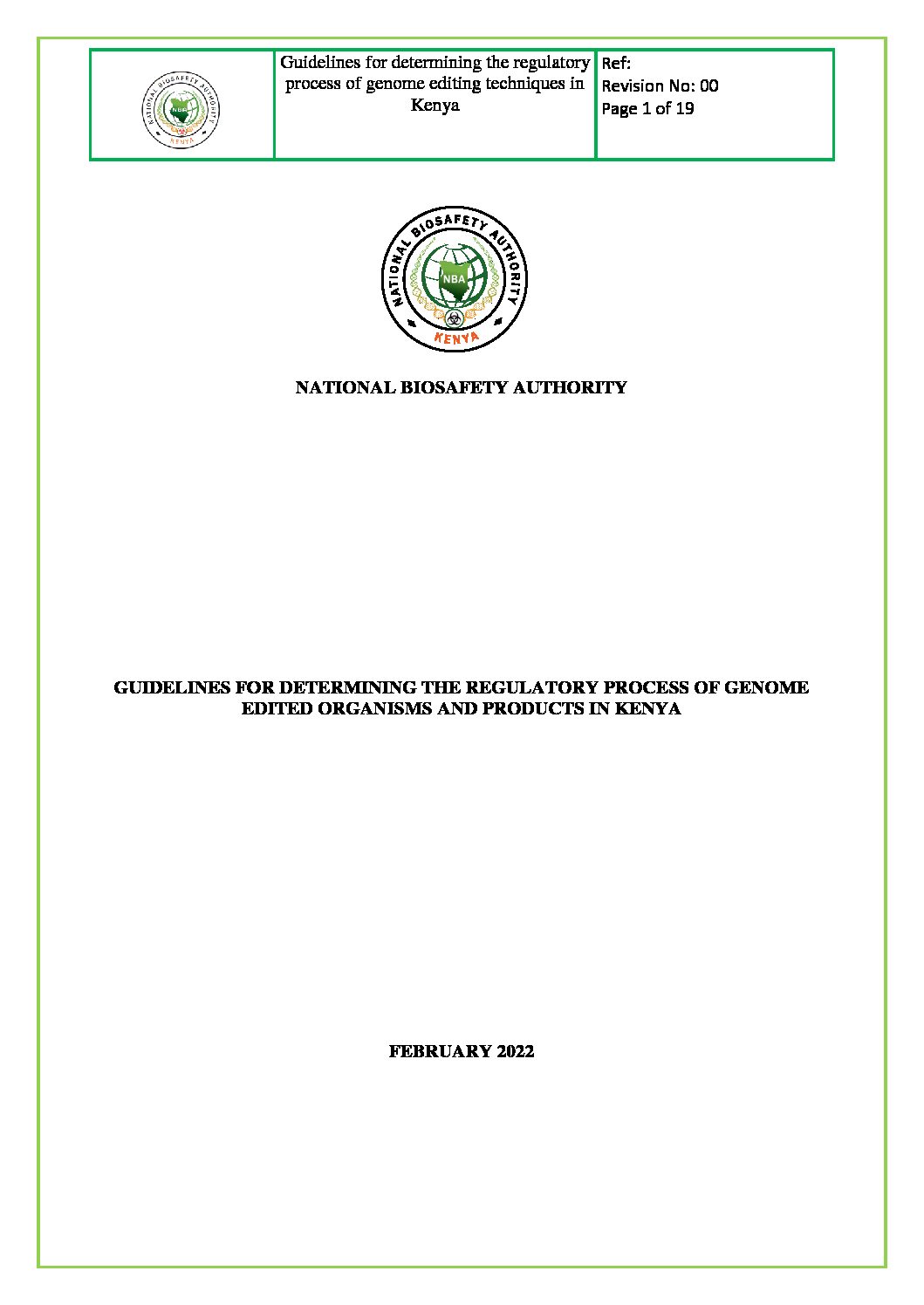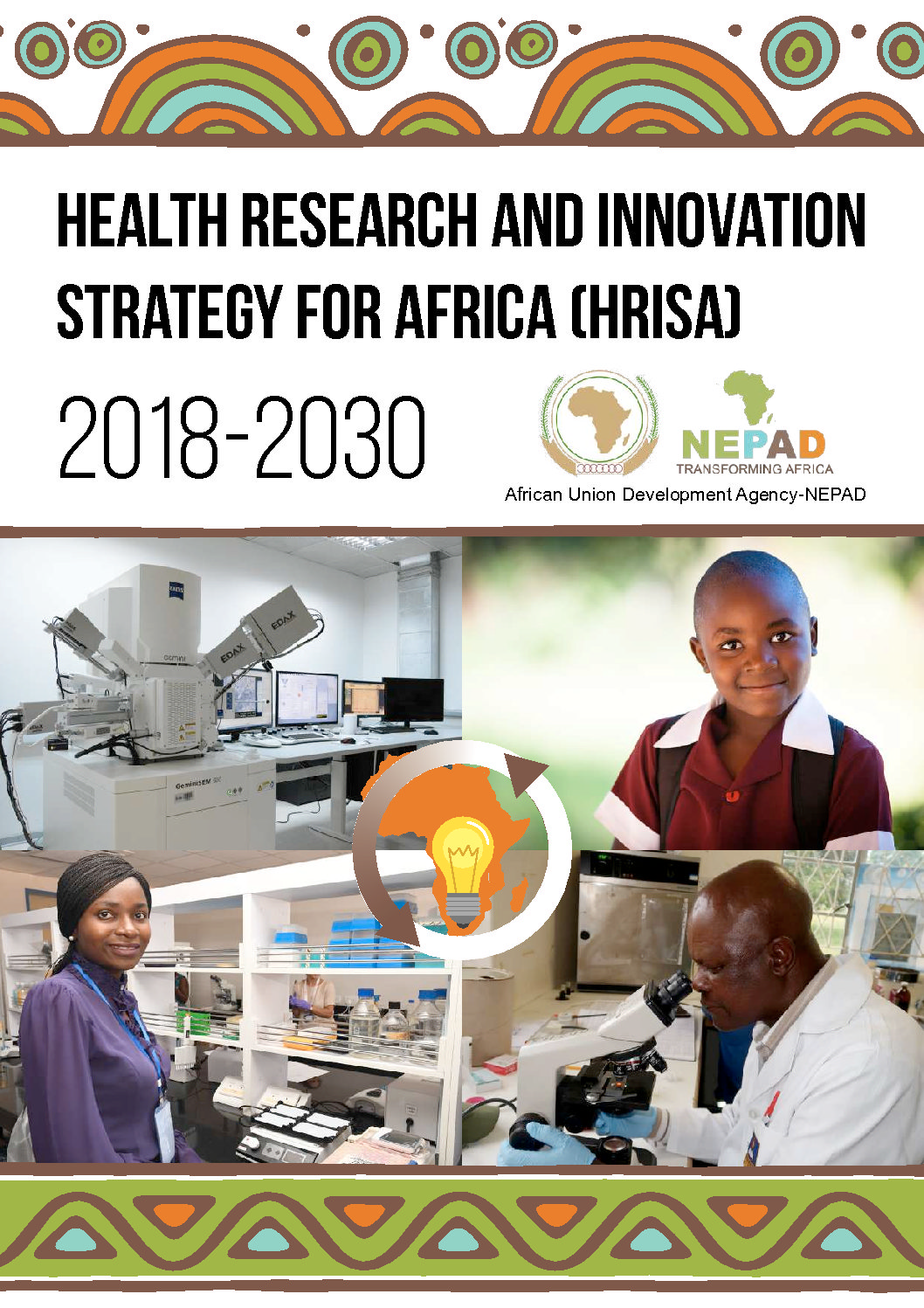Synthetic biology (SynBio) is a field of science that involves redesigning organisms for useful purposes by engineering them to have new abilities. Not to be confused with genome editing where scientists use tools to make smaller changes to the organism’s own DNA, in synthetic biology, scientists stitch together long stretches of DNA and insert them into an organism’s genome. These synthesized pieces of DNA could be genes that are found in other organisms or they could be entirely novel[i]
The African Union High-Level Panel on Emerging Technologies (APET) conducted a survey to ascertain emerging technologies of potential economic importance. The panel identified ten emerging technologies as priority areas of relevance for Africa’s socio-economic development. Among these technologies is Synthetic Biology.
The development and testing of SynBio is regulated by AUDA-NEPAD’s African Biosafety Network of Expertise (ABNE) whose overall goal is to enhance the capacity of African countries to build functional biosafety regulatory systems.
While this network is in place, it largely focuses on agricultural biotechnology, leaving a glaring gap on health biotechnology and specifically SynBio.
The development and testing of SynBio for health is taking place in several countries across SSA. In 2020, the government of Kenya funded research on Synthetic Biology under the country’s National Research Fund with the aim of employing synthetic biology innovations in addressing intractable challenges in food security and healthcare. This ongoing research is led by a multidisciplinary team of local researchers, with the aim of harnessing the power of synthetic biology to provide viable solutions to delayed disease surveillance and intervention in the country.
In 2021, participants from 20 countries gathered in Kampala, Uganda, for the Inaugural Synthetic Biology and Biosecurity conference. The conference brought together synthetic biology enthusiasts, scientists, data scientists, bioinformaticians, researchers, ethicists, policymakers, synthetic biology companies, and industries across Africa, with the view to deepening the understanding of, and, fostering the implementation of synthetic biology and biosecurity on the African continent.
Other actors working on SynBio include SynBio Africa which is a forum for researchers, students, citizen scientists, policymakers and the public at large to strategize and develop pathways for the propagation of SynBio technologies and their resultant products and services throughout Africa. On the other hand, Biomaker Africa trains biologists and non-biologists on SynBio and share science hardware which is critical to building SynBio tools.
SynBio approaches build on modern biotechnology methodologies and techniques hence certain provisions currently contained in the GMO regulations of many African countries may be extended to it. However, the regulatory frameworks for SynBio products including synthetic organisms across countries in Sub-Saharan Africa are yet to be developed.
As complex organisms are produced by SynBio, there will be a need to develop regulations for more comprehensive risk analysis. Notably, even African countries with well-established systems for regulation of genetically modified organisms (GMOs) such as Kenya, and South Africa, are yet to put in place regulations that are specifically meant for SynBio.[ii]
Notably, African countries are increasingly adopting GMOs, including Uganda, Ghana, Nigeria, Cameroon, Ethiopia, Malawi, Mozambique, and eSwatini and these might find it easy to adopt SynBio. In 2019, Nigeria amended the National Biosafety Management Agency Act of 2015 in 2019 to include the regulation of such emerging gene technology approaches as gene drive, gene editing and synthetic biology, and to ensure biosecurity, followed by National Guidelines for the Regulation of Gene Editing.
Concerns around SynBio heavily lies on the ethical and social implications, with concerns that bad actors might use synthetic biology for malicious purposes, infringing intellectual property rights on biological matter, and synthesis of threatening viruses. The establishment of ethical codes of conduct for biological scientists globally can assist in the control of SynBio.
Additionally, there has been the concern of biopiracy of Africa’s vast genetic resources. Biopiracy is the unethical or unlawful appropriation or commercial exploitation of biological materials native to a particular country or territory without providing fair financial compensation to [its] people or government.
References
[i] https://www.genome.gov/about-genomics/policy-issues/Synthetic-Biology
[ii] https://www.tandfonline.com/doi/full/10.1080/26895293.2021.2014986

